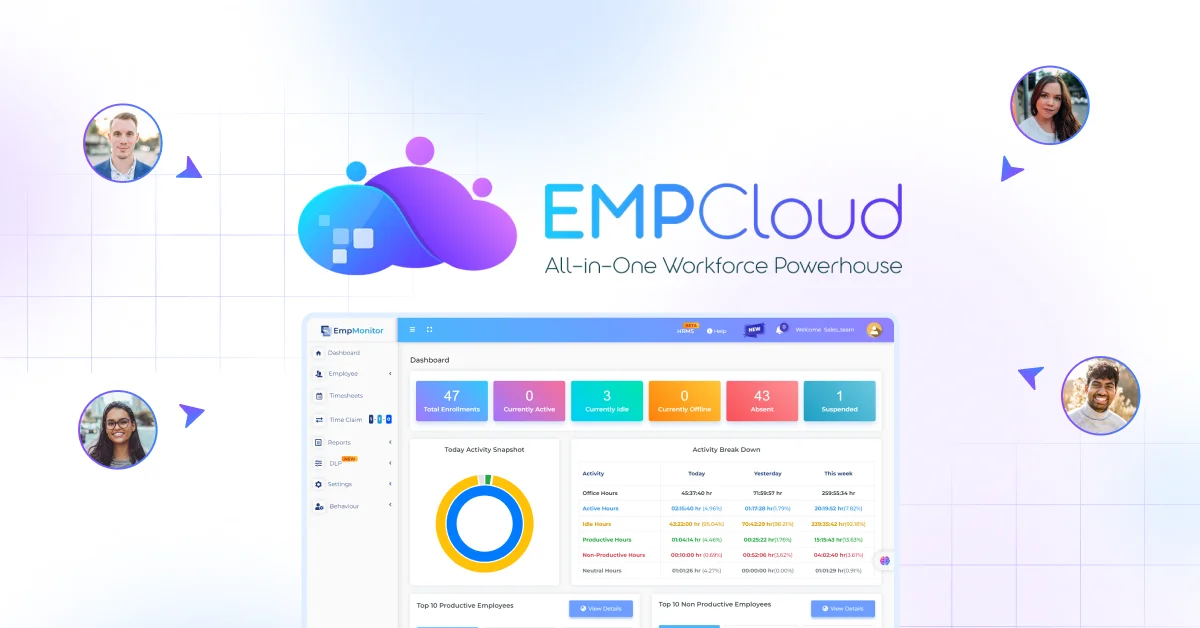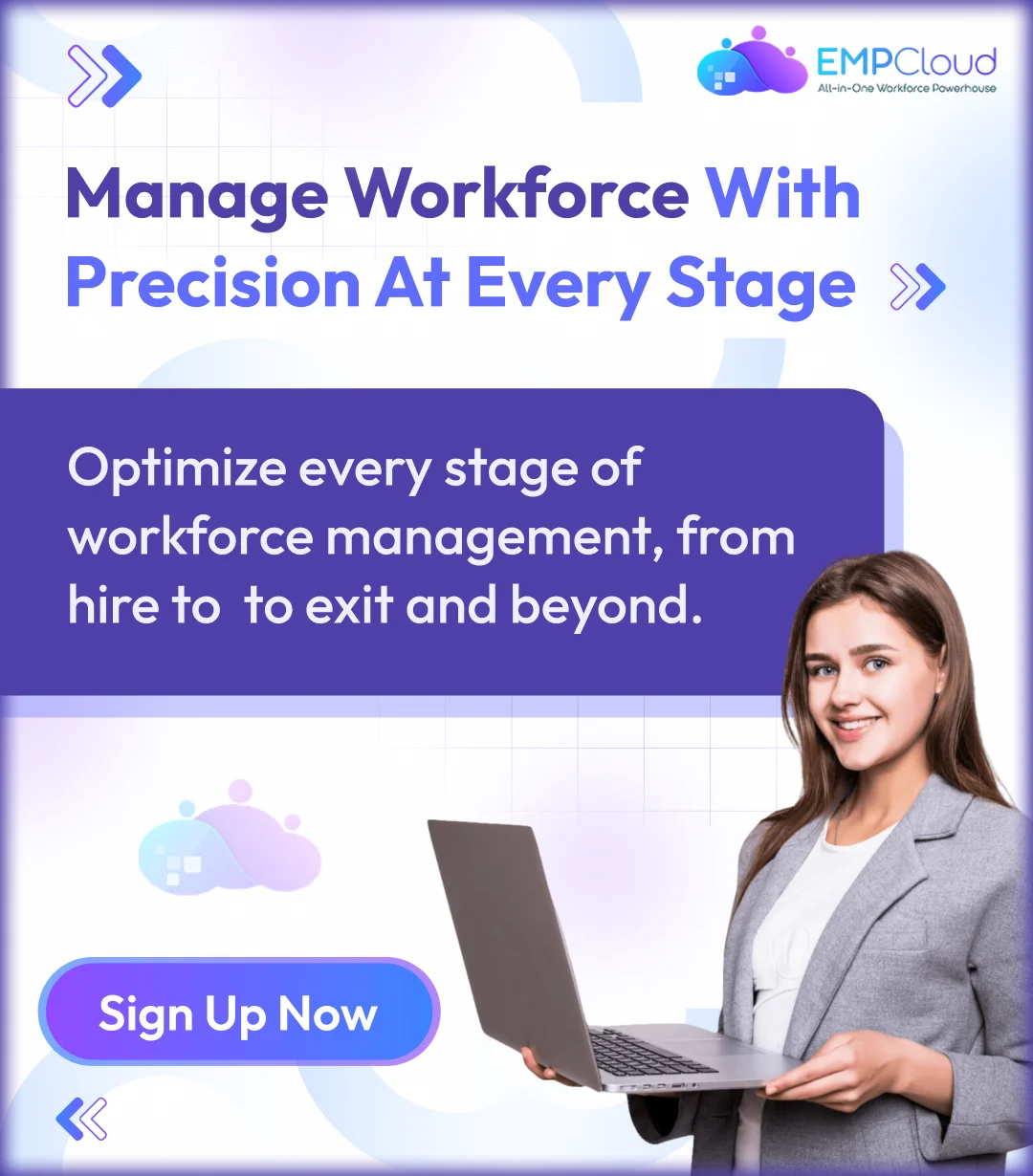
Teamwork has become more than just a professional requirement; it is the core of modern business success, especially as organizations transition toward remote setups, distributed workforces, and fast-paced digital environments. Strong collaboration not only accelerates project completion but also strengthens workplace relationships, employee retention, and innovation output. That’s why leaders and professionals across all industries actively rely on practical and strategic teamwork tips to keep operations smooth and efficient.
In this comprehensive guide, we explore effective strategies to improve communication, collaboration, and productivity, helping you build strong, high-performing teams capable of tackling any challenge. The upcoming teamwork tips will assist managers, HR leaders, business owners, and employees looking to enhance their work culture and team synergy.
In a hurry? Listen to the blog instead!
Why Teamwork Matters More Than Ever?
Work dynamics have evolved drastically. Hybrid teams are common, collaboration happens across multiple time zones, and digital workflows are now the backbone of productivity. When teamwork suffers, organizations face missed deadlines, reduced motivation, and unnecessary conflicts. Practical teamwork tips help companies avoid such pitfalls by providing structure, clarity, and mutual trust. Effective teamwork also supports employee goal setting, ensuring every individual aligns their objectives with overall team outcomes.
Strong teamwork helps improve:
Productivity and output quality:
When teams collaborate smoothly, tasks are completed faster with fewer errors. Shared expertise enhances work quality and ensures more accurate results.
Employee motivation and workplace happiness:
Supportive teamwork boosts morale. When employees feel heard and appreciated, they enjoy their work more, leading to better retention and engagement.
Problem-solving abilities:
Collaborative discussions bring diverse perspectives to the table. Teams can identify root causes quickly and build more practical solutions together.
Innovation and creative thinking:
Brainstorming within teams sparks new ideas. Different experiences, skills, and mindsets encourage creativity and drive innovation.
Faster project execution:
Well-aligned teams reduce delays, manage priorities effectively, and distribute workload efficiently, helping projects finish on or ahead of schedule.
With the right mindset and well-planned teamwork tips, teams achieve higher results consistently.
Also Read:
How To Master Employee Goal Setting For Lasting Success?
What Makes A Good Team?
A good team thrives on clear communication, mutual trust, and shared goals. When members understand their roles, collaborate openly, and respect diverse perspectives, they build a strong foundation for productivity. This creates an environment where ideas flow freely, conflicts are resolved quickly, and everyone feels valued enough to contribute their best efforts.
Additionally, a good team displays accountability, adaptability, and continuous learning. Each member takes ownership of their responsibilities, adjusts to challenges without friction, and supports others when needed. With strong leadership and a positive culture, such teams consistently deliver high-quality results and remain motivated, resilient, and innovative.
15 Actionable Teamwork Tips
1. Prioritize Open and Honest Communication:
Communication is the foundation of stronger collaboration. A core part of effective teamwork tips involves making sure everyone speaks openly and listens actively. Provide platforms where employees can voice concerns, share ideas, and clarify confusion without hesitation. This reduces misunderstandings and builds trust naturally.
Encourage scheduled feedback conversations, daily updates, and transparent progress sharing. Such habits improve clarity and prevent delays.
2. Establish Clear Roles and Understand Capabilities:
When responsibilities overlap, confusion and friction follow. One of the most important teamwork tips is defining roles clearly. Team members must understand what they are accountable for and what skills they must enhance.
When responsibilities become visible and documented, coordination strengthens, leading to faster, more confident decision-making.
3. Build Trust Through Consistency and Support:
Without trust, collaboration collapses. Trust grows when team members show support consistently, keep promises, and acknowledge effort. Professional teamwork tips emphasize building relationships where employees feel safe proposing solutions without fear of judgment.
Trust also encourages risk-taking, creativity, and long-term loyalty.
4. Encourage a Positive and Respectful Culture:
Culture shapes behavior more than rules ever will. Valuable teamwork tips advise nurturing a positive work environment where employees feel appreciated. Recognition boosts motivation, while respect ensures healthy conversations.
Even small gestures, like acknowledging hard work, create a ripple effect on morale.
5. Promote Accountability and Ownership:
High-performing teams own their tasks and outcomes. Accountability is a powerful part of advanced teamwork tips— because responsibility drives motivation and self-improvement. When employees know their tasks matter, they perform more efficiently.
Instead of blame, teams should offer help when someone struggles.
6. Set Realistic, Achievable, and Trackable Goals:
Goal-setting aligns efforts. One of the most reliable teamwork tips is setting measurable and time-bound milestones. Goals must be realistic and communicated clearly so no one feels overwhelmed or left behind.
Teams are more satisfied when they achieve meaningful progress together.
7. Conduct Productive and Well-Structured Meetings:
Meetings consume valuable time. Strong teamwork tips recommend minimizing frequent meetings and maximizing meeting outcomes. Every meeting should have a clear agenda, expected outcomes, and follow-up action items.
This transforms discussions into progress instead of repetitive conversations.
8. Celebrate Achievements and Milestones:
Recognition enhances performance. Relevant teamwork tips highlight celebrating both big wins and smaller improvements. Appreciation encourages employees to stay engaged and committed.
When people feel valued, they naturally give their best.
9. Strengthen Workplace Relationships Through Activities:
People collaborate better when they genuinely know each other. Interactive activities like brainstorming sessions, lunch gatherings, and collaborative workshops improve chemistry. Well-crafted teamwork tips promote bonding to increase trust and communication flow.
Comfort breeds cooperation.
10. Foster Continuous Learning and Skill Development:
Markets evolve, technology advances, and customer expectations shift. Teams must learn continuously. Embedded in modern teamwork tips is the idea of training, mentorship, and knowledge sharing—especially as Gen Z in the workplace brings new digital habits, learning styles, and expectations to team environments.
Growth eliminates skill gaps, improves decision-making, and boosts confidence across teams.
11. Resolve Conflicts Quickly and Professionally:
Conflicts, when ignored, escalate. Strategic teamwork tips recommend resolving disagreements early through open discussion. Leaders must stay neutral, focusing on fairness and facts instead of emotions. When teams handle disputes maturely, productivity remains unaffected.
Disagreements should become lessons, not obstacles.
12. Support Collaboration Through Digital Tools:
Technology accelerates teamwork. Smart teamwork tips encourage using platforms to automate repetitive tasks, manage progress, streamline communication, and store resources centrally. Digital support eliminates confusion and minimizes delays.
This improves clarity, transparency, and accountability across departments. As organizations scale, managing tasks, attendance, employee data, and workflows manually becomes challenging. This is where having the right digital platform becomes invaluable for enhancing productivity and team alignment.
To make collaboration seamless, companies can also implement an advanced workforce management software solution. It helps centralize operations, automate routine activities, monitor performance, and ensure smoother coordination among distributed teams.
One such solution widely adopted across industries is EmpCloud.
13. Empower Collaboration with EmpCloud:
EmpCloud is an advanced workforce management platform designed to centralize onboarding, performance tracking, attendance monitoring, time management, and employee records inside a single interface. By offering real-time insights, EmpCloud improves transparency, accountability, and communication among teams.
It supports structured workflows that help teams stay aligned, productive, and result-focused. With features like task management, productivity analytics, live location tracking, automatic timesheets, and policy management, EmpCloud empowers leaders to manage teams efficiently, whether remote, hybrid, or on-field.
14. Develop Leadership Capabilities Across the Team:
Leaders are not just managers; leaders empower growth. Effective teamwork tips encourage identifying and nurturing leadership potential within teams. When employees become more decisive and responsible, collaboration naturally strengthens.
Strong leaders distribute workload wisely, encourage learning, and inspire performance.
15. Review Team Strategies and Improve Regularly:
Finally, consistent improvement ensures long-term success. Among the smartest teamwork tips is frequently reviewing team challenges, performance gaps, communication bottlenecks, and outcomes. Teams should analyze what worked well, identify roadblocks early, and refine approaches based on real-world results. This not only prevents repeating past mistakes but also strengthens decision-making.
Regular improvement meetings, feedback sessions, and performance reviews allow teams to stay aligned with evolving goals, market changes, and customer expectations. Continuous improvement guarantees relevance, progress, and resilience, helping teams remain competitive and adaptable in fast-paced environments.
Also Read:
What Makes Gen Z In The Workplace So Unique?
How To Build A Hybrid Schedule That Boosts Productivity?
How Can EmpCloud Transform Modern Team Collaboration?
EmpCloud enhances teamwork by streamlining workforce processes, improving work reporting and communication— giving leaders complete visibility into daily performance. Here are six powerful ways it strengthens collaborative efficiency:
Manager-Centric Control:
EmpCloud provides leaders with real-time workforce data, allowing them to track performance, evaluate workloads, and remove bottlenecks instantly. This centralized visibility keeps teams aligned on priorities.
Time & Attendance Tracking:
With automated attendance and accurate work-hour insights, teams avoid confusion, maintain fair workload distribution, and reduce productivity gaps — supporting stronger accountability
Task & Project Management:
Tasks can be assigned, scheduled, and monitored effortlessly. Teams gain clarity on deadlines, responsibilities, and dependencies, which minimizes delays and strengthens execution discipline.
Productivity Analytics:
EmpCloud highlights activity levels, performance trends, and workload patterns. Managers can identify strengths, provide support where needed, and encourage consistent improvement.
Client & Document Management:
Client information and essential documents are stored in one secure location, reducing miscommunication and improving response times during collaborative work.
Automated Timesheets & Reporting:
Accurate timesheets and instant reports help teams evaluate progress, optimize resources, and make better decisions without manual effort. This supports faster feedback loops and smoother teamwork processes — especially important for organizations operating on a hybrid schedule where employees are split between remote and in-office work.
A unified dashboard displays critical workforce insights — including timesheets, tasks, attendance, and live updates enabling seamless coordination and smarter collaboration every day, even when team members are distributed across different locations.
HR-Focused Features:
- Face Recognition Attendance
- Leave & Attendance Tracking
- Automated Timesheets
- Policy & Document Management
- Employee Access History
- Employee Requests Handling
- Exit Process Streamlining
- Automated Payroll
A single, unified dashboard visualizes:
- Timesheets
- Tasks
- Attendance
- Live Locations
EmpCloud integrates effortlessly into collaborative workflows, helping organizations work faster, smarter, and more securely.
Why Collaboration Skills Matter In High-Performing Teams?
High-performing teams are built on more than processes and tools, they thrive on strong human connection, emotional intelligence, and smooth communication. Collaboration skills ensure that employees understand each other’s strengths, resolve conflicts respectfully, and stay aligned with organizational goals.
When individuals grow these abilities together, the workplace becomes more efficient, innovative, and resilient.
Additional Insight: Collaboration Skills Matter:
Beyond workflows, human abilities shape performance. Strong teamwork skills reflect emotional intelligence, communication style, patience, and responsibility, all crucial for successful cooperation.
Personality Qualities Strengthening Teams:
Powerful teams share key teamwork qualities such as adaptability, discipline, respect, and supportive behavior. These traits reduce friction and enhance harmony.
Teamwork in Global Workspaces:
Digital environments rely on collaboration. Modern workplaces value teamwork skills examples like conflict resolution, knowledge sharing, and coordinated planning, which elevate productivity across distributed teams.
Characteristics of High-Performance Teams:
When asking what makes a good team, the answers often include unity, shared objectives, mutual respect, and aligned values. Teams that encourage open feedback and stay calm under pressure consistently outperform others.
Improving Collaboration Methods Over Time:
Professionals often explore how to improve teamwork skills for better adaptability. Practicing communication, embracing constructive criticism, and engaging in group tasks strengthen collaboration over time.
Guidance for Managers and Leaders:
Organizations rely on tips for effective teamwork to strengthen clarity and structure. When managers enhance transparency and communication pathways, departments perform faster with fewer errors.
Achieving Winning Results Together:
Consistency helps teams adopt tips for successful teamwork, improving coordination and reducing stress. When operations flow smoothly, output increases effortlessly.
Deepening Skill Maturity:
Advanced companies invest in effective teamwork skills to manage complex workflows. Employees who can adapt quickly, share knowledge freely, and perform under deadlines strengthen organizational resilience.
Conclusion
Improving work culture isn’t about enforcing rules; it’s about enabling communication, building trust, learning continuously, and supporting digital transformation. By applying these smart teamwork tips, organizations can boost productivity, reduce conflicts, and create an environment where employees feel motivated to do their best work.
Platforms like EmpCloud further strengthen collaboration by centralizing workforce data, automating daily tasks, and delivering real-time insights, helping teams work faster, smarter, and more confidently.
When teamwork becomes a culture, success becomes a habit.
FAQs
1. How can remote teams maintain strong collaboration when working across different time zones?
Remote teams can improve collaboration by scheduling overlap hours, using shared project management tools, documenting decisions clearly, and maintaining asynchronous communication channels to reduce delays.
2. What tools can help employees improve teamwork skills in a digital workplace?
Platforms offering task management, real-time chat, shared dashboards, time tracking, and document collaboration help employees coordinate better, stay aligned, and improve accountability.
3. How can organizations identify if their current teamwork strategies are failing?
Warning signs include frequent miscommunication, rising conflicts, project delays, repeated task duplication, and increased employee stress or disengagement. Regular feedback and performance reviews can reveal these issues early.








